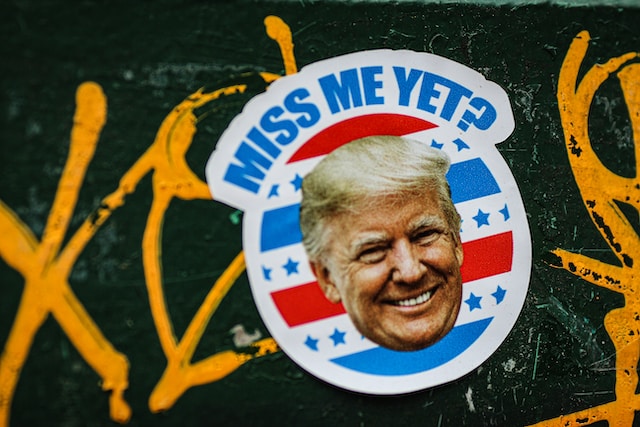
Former President Donald Trump, along with his aide Walt Nauta, pleaded not guilty to 37 charges related to the alleged mishandling of classified documents. During the hearing, Trump was hunching over and scowling. The former president did not speak during the proceedings.
Magistrate Judge Jonathan Goodman made a ruling preventing Trump from communicating with Nauta about the case, and prosecutors were instructed to create a list of potential witnesses with whom Trump cannot communicate, except through counsel. However, no travel restrictions were imposed on either defendant.
The Justice Department recommended the release of both Trump and Nauta without any financial or special conditions, stating that they do not view either defendant as a flight risk. Prosecutor David Harbach emphasized this point during the hearing.
Trump’s lawyers requested a jury trial during the arraignment, expressing a plea of not guilty on behalf of the former president. The charges brought against Trump in the Justice Department’s classified documents case elevate the legal risks he faces as a potential candidate in the 2024 GOP race. Special counsel Jack Smith was present. The charges against Trump include allegations of illegally retaining national defense information and concealing documents, violating witness-tampering laws as part of the Justice Department’s investigation into the materials.
As Trump left his Doral resort in a motorcade, he responded to a bystander’s question about how he was feeling by saying “great” and waving.
Trump took to social media prior to heading to court, posting a message that described the day as “ONE OF THE SADDEST DAYS IN THE HISTORY OF OUR COUNTRY. WE ARE A NATION IN DECLINE!!!”
The hearing on Tuesday marked the beginning of what is expected to be a lengthy and dramatic legal process involving criminal charges and potential appeals that could span several years. US District Judge Aileen Cannon, a Trump nominee known for her controversial decisions, has been assigned the case. The hearing focused on the arraignment, with Trump’s attorneys Todd Blanche and Chris Kise representing him in court. However, the extent of Kise’s involvement going forward remains uncertain.
Outside the courthouse, Trump attorney Alina Habba criticized what she called a “two-tiered system of justice” and denounced the indictment as an “unapologetic weaponization of the criminal justice system.”
Jay Bratt, the Justice Department’s counterintelligence chief, attended the hearing, along with prosecutors David Harbach and Julie Edelstein.
The charges against Trump are severe and carry the possibility of several years in prison if he is convicted. Among the 37 counts, 31 involve the willful retention of national defense information, which does not depend on the classification of the documents. In addition to the obstruction conspiracy, Trump faces charges related to document concealment and false statements.
With Tuesday’s hearing concluded, the case will proceed through pretrial proceedings, likely involving disputes over evidence and potential motions to dismiss. The Trump legal team will have ample opportunity to prolong the proceedings, potentially extending them beyond the 2024 election. The assignment of Judge Cannon, who previously exhibited favoritism toward Trump, adds an unpredictable element to the prosecution of the case.
Legal experts have expressed concern about Cannon’s handling of Trump’s lawsuit challenging the FBI’s search of Mar-a-Lago, as she appeared to create special legal rules in favor of the former president. Her decision was subsequently criticized and overturned by a panel of right-leaning appellate judges. The impact of Cannon’s involvement in the current case remains uncertain.
As the legal battle unfolds, Trump’s future hangs in the balance, with the potential consequences of these charges being highly significant.